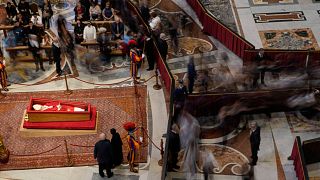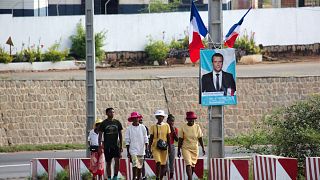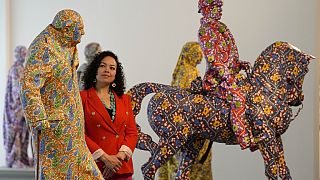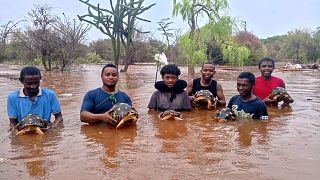Madagascar
People in Madagascar headed to the polls on Thursday to vote for a new president despite calls by the opposition to boycott the election following weeks of violent protests.
Observers said there were queues at polling stations in areas that support incumbent President Andry Rajoelina, while there were few voters seen in opposition neighbourhoods.
In Antananarivo, many people said they were heeding calls by a collective of 10 candidates to stay away from voting booths.
A night-time curfew in the capital ended just two hours before voting started.
The candidates have been complaining of an "institutional coup" in favour of Rajoelina. Opposition leaders and civil society groups had also called for a postponement of the election.
There was a mixed reactions from people to the polls.
Student Francky Randriananantoandro said he was worried because he felt there were some factions who “just want the country to be in chaos”.
An unemployed woman, Jeanne Yvonne Razafindramanana, felt that the opposition candidates boycotting the poll should have taken part, saying their failure to do so was creating “disorder”.
But others, like security agent, Josiane Rasoamalala, just hoped the elections would have a positive outcome for Madagascar.
"I hope for change in our country, for development, for all people to have work and for the price of basic necessities to come down, so that we can meet our needs," she said.
The choice facing voters on Thursday was limited to three men, including the incumbent president, after the other 10 candidates announced they were pulling out.
While Andry Rajoelina is seeking a second term in office, a violent crackdown on protests by security forces ahead of the election has tainted his democratic credentials.
The struggling economy, lack of social services, and widespread poverty have also had a negative impact on his popularity.
Rajoelina first took power in 2009 and served as president in a transitional government until 2014 after the previous leader, Marc Ravalomanana, was removed in a military-led coup.
He made a return in 2018 when he beat Ravalomanana in a runoff. Ravalomanana and another former president, Hery Rajaonarimampianina, are among those boycotting the election.
Many are hoping this election will break with a past of disputed votes, coups, and political instability that have characterised the country since it gained independence from France in 1960.
The country has been in turmoil since June after reports revealed that Rajoelina had acquired French citizenship in 2014.
Opposition figures boycotting the election say he should have been stripped of his Malagasy nationality and disqualified as a result, but the country’s highest court ruled in his favour, allowing him to stand.











Go to video
Tanzania opposition says jailed leader not seen by family, lawyers
Go to video
Tunisia jails opponents, critics of President Saied
Go to video
Uganda plans law to allow military prosecution of civilians
Go to video
Tanzania opposition protests election ban
01:02
Former Guinean junta leader Moussa Dadis Camara leaves country for medical reasons
00:57
Gabon: Oligui Nguema clinches a landslide win